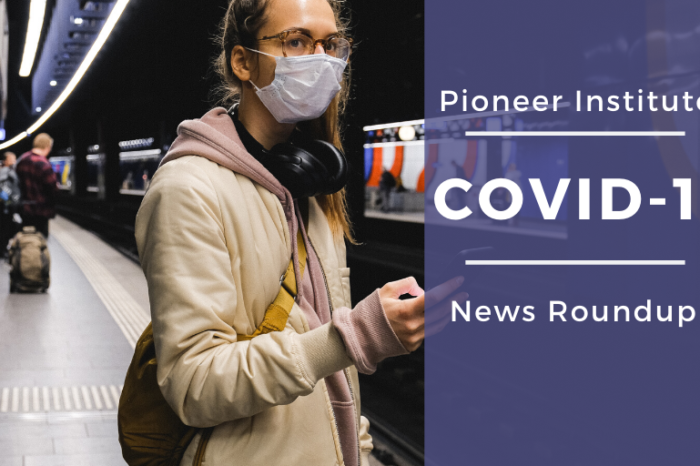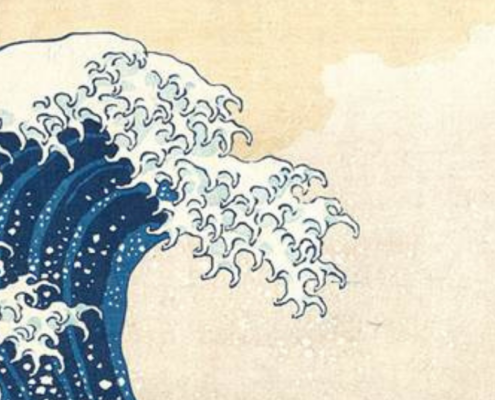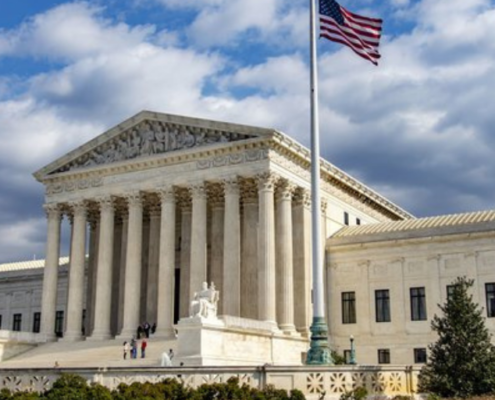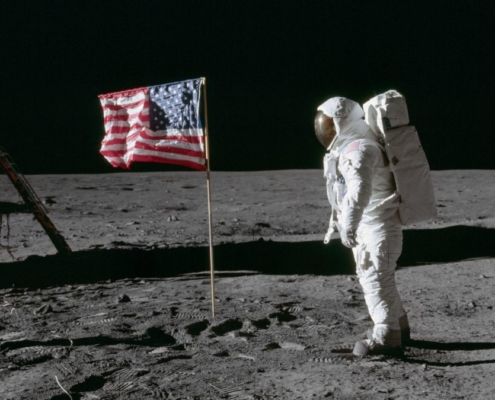COVID-19 Roundup from Pioneer: Antibodies & immunity; Talking about WHO; Telecommuting Survey Results; Mapping COVID – Update; & more!
Pioneer staff share their top picks for COVID-19 stories highlighting useful resources, best practices, and questions we should be asking our public and private sector leaders. We hope you are staying safe, and we welcome your thoughts; you can always reach out to us via email: pioneer@pioneerinstitute.org.
Our Top Picks for COVID-19 Pandemic News:
William Smith, Visiting Fellow in Life Sciences: Gilead drugs seems to work for moderately ill patients also. The CDC is still not certain about the level of immunity that antibodies provide. Details on the clinical trial for remdesivir.
Joe Selvaggi, Host, “Hubwonk“: Who is WHO? Pioneer’s Josh Archambault and I talk with Hoover Institution’s Dr. Lanhee Chen about the role that the World Health Organization plays, what dysfunction may have contributed to the scale of the current COVID-19 epidemic, and what steps can be taken to bring back transparency and trust. Listen now!
Michael Walker, Senior Fellow in Government Data Transparency: Don’t forget to check out our interactive map of COVID cases in Massachusetts, updated every week with newly released city and town data!
- NEW: With so many deaths occurring at long-term care facilities, in Massachusetts and other states, Pioneer has added a new COVID-19 tracker, with data from the state’s weekly Public Health Report. This data includes any nursing home, rehabilitation center or other long-term care facility with 2+ known COVID-19 cases and facility-reported deaths. It includes the number of licensed beds, ranges of case numbers, deaths, and deaths per bed for 320 facilities. Pioneer will update the tracker weekly.
Jim Stergios, Executive Director: We are pleased to share the results and analysis of our recent telecommuting poll, and we are grateful to those of you who were among the 700+ participants. The poll results were covered in the Boston Herald, NECN, CBS Local, State House News Service and additional news outlets.
What’s the latest on unemployment? Greg Sullivan, Research Director, crunched the most recent numbers.
Our Picks for Public & Private Sector Best Practices:
Rebekah Paxton, Research Analyst: This week marks the start of possible reopening of Boston’s office spaces – are they prepared? Check out our new report on one major consideration – social distancing in elevators.
Jamie Gass, Pioneer’s Education Policy Director: This week on “The Learning Curve” podcast, a new poll finds that 1 in 5 teachers say they are unlikely to return to their classrooms if schools reopen this fall. Also on the show, Cara and Gerard talked with Dana Gioia, a poet, writer, and the former Chairman of the National Endowment for the Arts, on why the arts are so pivotal to the intellectual and civic development of America’s K-12 schoolchildren. Last week’s episode featured homeschooling expert, Kerry McDonald.
- Also, Pioneer released a new report and video promoting computer science education in K-12 schools, important now more than ever given our increasing reliance on online technology.
Questions for Our Public & Private Sector Leaders:
Barbara Anthony, Senior Fellow in Healthcare & Mary Z. Connaughton, Director of Government Transprency: “As of this writing, about 60 percent of Massachusetts’ 5,000-plus Covid-related deaths are nursing home residents. Some of those residents were receiving temporary rehabilitative services, others were in long-term care. Apart from overall number of deaths, we know little about the faces behind the numbers.” Read more in WGBH News.
Andrew Mikula, Peters Fellow, has been taking an in-depth look at COVID’s impact on regions across Massachusetts. Read his analysis here:
- Even for the most remote part of Massachusetts (Franklin County), it’s far from business as usual
- Once anchored by higher education, Hampshire County, MA finds itself out of work after a cancelled semester
- In Hampden County, COVID-19 exacerbates a stark employment divide between urban and rural areas
- As stay-at-home orders remain in place at the start of summer tourist season, COVID-19 takes a bite out of resort towns’ economies
POLL Results: In the last COVID Roundup, we asked: Do the reopening guidelines in your state make sense to you? Here are the results: 56% Yes; 44% No
Reader Question:
“How many towns in Massachusetts operating under open town meeting are having town meeting before July 1st, and how are they ensuring the safety of those in wishing to attend, or how are they ensuring that those that are part of a vulnerable population are not disenfranchised? Conversely, how many towns in Massachusetts operating under town meeting are deciding to postpone open time meeting until after the start of fiscal 2021, and how are they approaching their financials if so?”
- Pioneer is all over this. Be all the lookout for our new Open Meeting Law Violation Hotline!
Do YOU have interesting questions and/or articles to share with us? Please email us, or message us through our social media channels below!
Share our COVID-19 roundups: bit.ly/PIcovid
Join us on social media!















